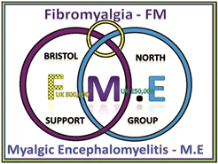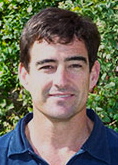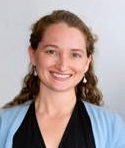Datum/Tijd
Date(s) - 05/02/2014
18:30
Categorieën Geen Categorieën
Watershed – Bristol – 6.30pm – Feb 5th 2014.

Watershed, Harbourside, Bristol 6.30 – 9.15 pm Feb 5th 2014.
Tickets must be bought in advance here on the ‘shop’ page.
Flyer available here.
Programme available here – Programme
This event has been approved for 2 CPD credits.
The ‘Exercise and ME/CFS’ evening with Prof Mark VanNess at Bristol’s Watershed follows the day after his visit to Belfast to address MPs at Stormont.
He will explain surprising evidence relating to exercise in people
with ME or CFS, from research he undertook with Staci Stevens and Chris
Snell at the Workwell Foundation in California (& the Pacific Fatigue Lab).
This event will be of great interest to many
people: healthcare professionals such as GPs, occupational therapists,
physiotherapists, social workers and others working with CFS and ME
patients, patients, their carers and families, and also medical
researchers.
 The
The
two-day testing protocol is designed to objectively measure functional
capacity and the symptom of post-exertional malaise in chronic
fatigue syndrome/myalgic encephalomyelitis (CFS/ME). Using these
discoveries they have also been able to develop therapeutic strategies
to help patients. This is the first time that these discoveries will be
explained in the UK by a member of their research team. In the fields of
exercise science and medicine, cardiopulmonary exercise testing is
considered the gold standard for measuring and evaluating fatigue.
In Bristol Prof VanNess will be joined by Dr Nigel Speight – a well known consultant paediatrician with decades of experience in helping children and young people with ME – and by Erinna Bowman a
Research Fellow with the CURE-ME research team led by Dr Luis Nacul at
the London School of Hygiene and Tropical Medicine. She will talk about
their current research projects, for which they been awarded an approx
£1,000,000 grant from the National Institutes of Health (USA), as well
as speaking about their past work.
The role of exercise and activity management in
ME and CFS has been a source of great controversy for many years –
widely accepted as beneficial by many healthcare workers but questioned
by many ME charities and patients who have personally suffered adverse
consequences caused by overactivity. This work brings a breath of fresh
air and objective scientific measurement into a field that has long been
dominated by confusion and subjective impressions.
About the speakers
 Prof Mark VanNess PhD is a Scientific Advisory Committee Member at the Workwell Foundation in
Prof Mark VanNess PhD is a Scientific Advisory Committee Member at the Workwell Foundation in
California, USA. He has a doctorate in neuroscience and has been
involved in many published research projects, working alongside Staci
Stevens and Chris Snell. He also continues to teach at the University of
Pacific. Mark VanNess began working on CFS in 1999.
His main research interest is in the role of the autonomic nervous
system in immune dysfunction. He also has a particular interest in the
mechanisms that produce post-exertional malaise in women with CFS,
especially as they contribute to physical and cognitive dysfunction.
Of their new study, published this summer, Staci Stevens says; it
“provides the CFS/ME community an objective,
quantitative marker of post exertional malaise. To date, diagnosis has
been qualitative based on a list of symptoms, resulting in wide
variability in the patient population.”
More information on the Workwell research and some very good video explanations can be found here. The
team also includes Dr Dan Peterson, who is one of the forefathers of ME
and CFS research and treatment in the USA; since an epidemic affected
his patients in Nevada in the 1980s.
How does this research help patients? CPET is frequently used for measuring disability in various health conditions, but it has a particular benefit for ME and CFS patients,
since it can be used to help patients establish and monitor a SAFE
level of activity. This is an individual level, different for each
individual, which when taken into account can effectively protect
patients from the dangers of relying on Graded Exercise Therapy or even
Pacing. It appears that many patients are actually living their lives
and exercising at a level of activity (reliant on inefficient
anaerobic energy production) which may continue to harm them and cause
long term severe disability.
The results from the Pacific Fatigue Lab were at first so surprising
that the researchers went back to check their equipment was working OK.
They had not found similar results in any other conditions. To their
astonishment they were finding objective evidence of the PEM or Post
exertional deterioration experienced by ME patients.
In the UK ideas about exercise and ME /CFS have been coloured by
exaggerated claims in the media about the results of the PACE Trial.
Mark VanNess and his Workwell colleagues brings a breath of fresh
air, objective measurement and science, to the confusion of subjective
claims and counter claims about the role of exercise in the management
of ME and CFS. See ME Research comment for interesting analysis of the PACE Trial.
 Dr Nigel Speight MA, MB, BChir, FRCP, FRCPCH, DCH
Dr Nigel Speight MA, MB, BChir, FRCP, FRCPCH, DCH
Dr Speight is currently a medical advisor for The ME Association, The
25% Group, TYMES Trust, and the MEA of Wales. He is widely considered
to be the most knowledgeable and experienced ME consultant paediatrician
in the UK. He has remained dedicated to working to protect children and
their families from wrongful child protection proceedings. These cases
are currently growing in frequency as consequence of widespread
misunderstanding caused by some of the advice in the NICE Guidelines.
He was on the Chief Medical Officer’s Working Party which reported in
2002 and also the College of Paediatrics Guidelines group. He gave
evidence to the Gibson Inquiry and on three occasions has talked to the
ME interest group at the Scottish Parliament. He was not involved in
drawing up the NICE Guideline for ME.
Recently, along with 25 other specialists representing 13 countries,
Dr Speight was a member of the International Consensus Panel which
published the ‘Myalgic Encephalomyelitis: International Consensus Criteria’ 2011 for
diagnosing and researching ME. This was a development from the Canadian
Consensus Criteria. It is based on the most up-to-date international
research and clinical experience which ‘strongly point to widespread
inflammation and multisystemic neuropathology’ stressing that;
“Individuals meeting the International Consensus
Criteria have myalgic encephalomyelitis and should be removed from the
Reeves empirical criteria and the National Institute for Clinical
Excellence (NICE) criteria for chronic fatigue syndrome”.Dr Speight has also contributed to “Myalgic Encephalomyelitis – Adult and Paediatric: International Consensus Primer for Medical Practitioners” edited
by B Carruthers and M van de Sande and published in 2012. This
explains that “the criterial symptoms, such as the distinctive abnormal
responses to exertion can differentiate ME patients from those who are
depressed or have other fatiguing conditions.”
 Erinna Bowman is
Erinna Bowman is
a Research fellow and named researcher for the recent award of approx.
£1,000,000 given to the team at the London School of Hygiene and
Tropical Medicine by the The National Institutes of Health (USA). Dr
Luis Nacul leads the CURE – ME team, which works to improve recognition, diagnosis and treatment of ME/CFS; from the National CFS/ME Observatory,
which explored the impact on affected individuals, to the development
of the UK’s first biobank of samples for ME/CFS research. They are now
working to extend the biobank and to engage in immunological research,
as well as establishing a network of international ME/CFS research
groups, in Europe (Norway, Italy, Latvia) and South and North America.. The
team will undertake a longitudinal study of clinical presentation,
immune phenotype, gene expression and virus infection among ME/CFS
patients and MS and population controls. Clinical samples will be
collected for studies of NK cell function virology (herpesvirus
infection), and gene expression and for banking as a resource for future
ME/CFS research. Dr Eliana Lacerda one of the lead researchers on the
project, said:
At least one in every 500 adults [0.2% or approx. 126,000 adults] in the UK is affected by ME/CFS at any one time, as well as a smaller
but significant proportion of children. The NIH grant provides a huge
boost to the Biobank, which will enable more research into the causes of
ME/CFS and ultimately help those affected.
The team will analyse blood samples for NK cell phenotype and
function, screen samples for evidence of herpesvirus infection and viral
load, focusing on Epstein Barr virus (EBV), cytomegalovirus (CMV), and
human herpesvirus-6 (HHV-6), describe clinical phenotype and
fluctuations over time, and correlate the presence of symptoms and
severity with markers of virus activity and immune function, and
investigate gene expression profiles associated with ME/CFS and how they
vary in relation to changes in disease severity, virus activity, NK
cell function, and other markers of immune function.
This is thought to be the first longitudinal study of ME/CFS to
incorporate both mild and severe cases, age, sex, and residence-matched
Multiple Sclerosis (MS) and healthy controls, and to incorporate
virological, immunological and gene expression data into the same study.
It is expected that this work will contribute towards the
identification of robust biomarkers which will allow clinicians to
correlate ME/CFS phenotype (including clinical presentation, genetic,
immune, and viral markers) with disease severity and prognosis and may
reveal new options for interventions research.
This work is in line with other international research teams, including the Infection Associated ME/CFS team at Stanford University.
Programma
|
6.30 – 6.35 |
Welcome |
|
|
6.35 – 7.05 |
Case histories: Four young people’s stories |
Film: abridged “Voices From the Shadows” |
|
|
Mark VanNess, Workwell Foundation USA Ass. Prof University of the Pacific |
“Understanding Fatigue in ME/CFS: An exercise in objectivity” |
|
7.45 – 8.00 |
Break |
|
|
8.00 – 8.30 |
Dr Nigel Speight Consultant Paediatrician: medical advisor to many ME Charities |
“The Challenge of ME/CFS in children and Young people” |
|
8.30 – 8.45 |
Erinna Bowman, Research Fellow CURE-ME at London School of Hygiene & Tropical Medicine |
“Establishing a Biobank for biomedical research on ME/CFS”
|
|
8.45 – 9.15 |
Sue Waddle Spokesperson for ME Research UK |
Question & Answer session |
